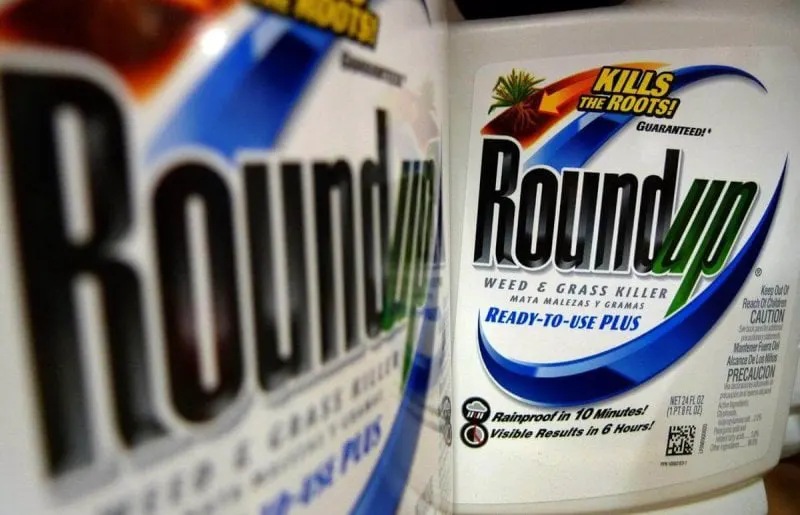Viewpoint: In Roundup-cancer cases, juries are often swayed by emotional arguments
Viewpoint: In Roundup-cancer cases, juries are often swayed by emotional arguments — but the facts are in glyphosate’s favor


In a post-COVID-19 world, even California, the most anti-science state in the union, which once tried to ban Happy Meals and Golf and claimed the science was on their side, with “may cause cancer” labels on 165,000 products, including the buildings the products are sold in, is no longer willing to accept that plants are people. The Bayer company has won another glyphosate case, even with a jury that can be swayed using emotion.
Glyphosate, the active ingredient in Roundup, has a chemical that only acts in plants. Plants are not people. That did not stop the “endocrine disruption” community, trial-lawyer-funded epidemiologists inside France’s International Agency for Research on Cancer, and then astroturf groups like US Right To Know and their handlers at Organic Consumers Association from claiming that some magical “chemical cocktail” created by repeated use might be possible to harm humans.
Unless you fall into a vat of it and can’t get out, it is not possible.
Yet the the trial lawyer is blaming…Zoom. It is a lot harder to appeal to emotion when trials take a long time and people can look at the facts. Trial lawyers are trained to appeal using theater tactics, and that is harder on a conference call.
Plus, people are not back on Team Science after decades of being sold alternatives to medicine and organic food. A new appreciation for facts over epidemiological hype means trial lawyers – who once counted on a jury seeing a cancer patient opposed to Evil Science corporations – are having a much harder time getting new yachts.
And two they did lose to a jury, because juries don’t have to use science, can still be won on appeal – where science is all that matters. The company is actually hoping they lose on appeal also, because then they could go to the Supreme Court, where the science case would be settled. We’ll write an amicus brief if that happens. We have no conflict of interest, Bayer and Monssanto before them never gave us a penny. It means ruining our perfect 2-0 record at the Supreme Court. Being 2-0 is fitting for Science 2.0. But 3-0 is fine because it will mean science won over supernatural beliefs once again.
Hank Campbell founded Science 2.0 in 2006, and writes for USA Today, Wall Street Journal, CNN, and more. His first book, Science Left Behind, was the #1 bestseller on Amazon for environmental policy books. Follow Hank on Twitter @HankCampbell
A version of this article was originally posted at Science 2.0 and is reposted here with permission. Science 2.0 can be found on Twitter @science2_0

 | Videos | More... |

Video: Nuclear energy will destroy us? Global warming is an existential threat? Chemicals are massacring bees? Donate to the Green Industrial Complex!
 | Bees & Pollinators | More... |

GLP podcast: Science journalism is a mess. Here’s how to fix it

Mosquito massacre: Can we safely tackle malaria with a CRISPR gene drive?

Are we facing an ‘Insect Apocalypse’ caused by ‘intensive, industrial’ farming and agricultural chemicals? The media say yes; Science says ‘no’
 | Infographics | More... |

Infographic: Global regulatory and health research agencies on whether glyphosate causes cancer
 | GMO FAQs | More... |

Why is there controversy over GMO foods but not GMO drugs?

How are GMOs labeled around the world?

How does genetic engineering differ from conventional breeding?
 | GLP Profiles | More... |

Alex Jones: Right-wing conspiracy theorist stokes fear of GMOs, pesticides to sell ‘health supplements’




 Viewpoint — Fact checking MAHA mythmakers: How wellness influencers and RFK, Jr. undermine American science and health
Viewpoint — Fact checking MAHA mythmakers: How wellness influencers and RFK, Jr. undermine American science and health Viewpoint: Video — Big Solar is gobbling up productive agricultural land and hurting farmers yet providing little energy or sustainabilty gains
Viewpoint: Video — Big Solar is gobbling up productive agricultural land and hurting farmers yet providing little energy or sustainabilty gains Trust issues: What happens when therapists use ChatGPT?
Trust issues: What happens when therapists use ChatGPT? Fighting deforestation with CO2: Biotechnology breakthrough creates sustainable palm oil alternative for cosmetics
Fighting deforestation with CO2: Biotechnology breakthrough creates sustainable palm oil alternative for cosmetics California, Washington, Oregon forge immunization alliance to safeguard vaccine access against federal undermining
California, Washington, Oregon forge immunization alliance to safeguard vaccine access against federal undermining 30-year-old tomato line shows genetic resistance to devastating virus
30-year-old tomato line shows genetic resistance to devastating virus The free-range chicken dilemma: Better for birds, but with substantial costs
The free-range chicken dilemma: Better for birds, but with substantial costs ‘You have to treat the brain first’: Rethinking chronic pain with Sanjay Gupta
‘You have to treat the brain first’: Rethinking chronic pain with Sanjay Gupta
